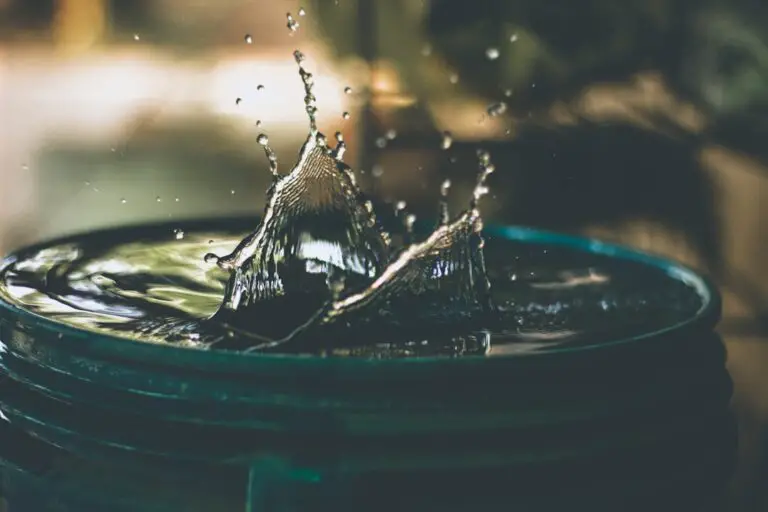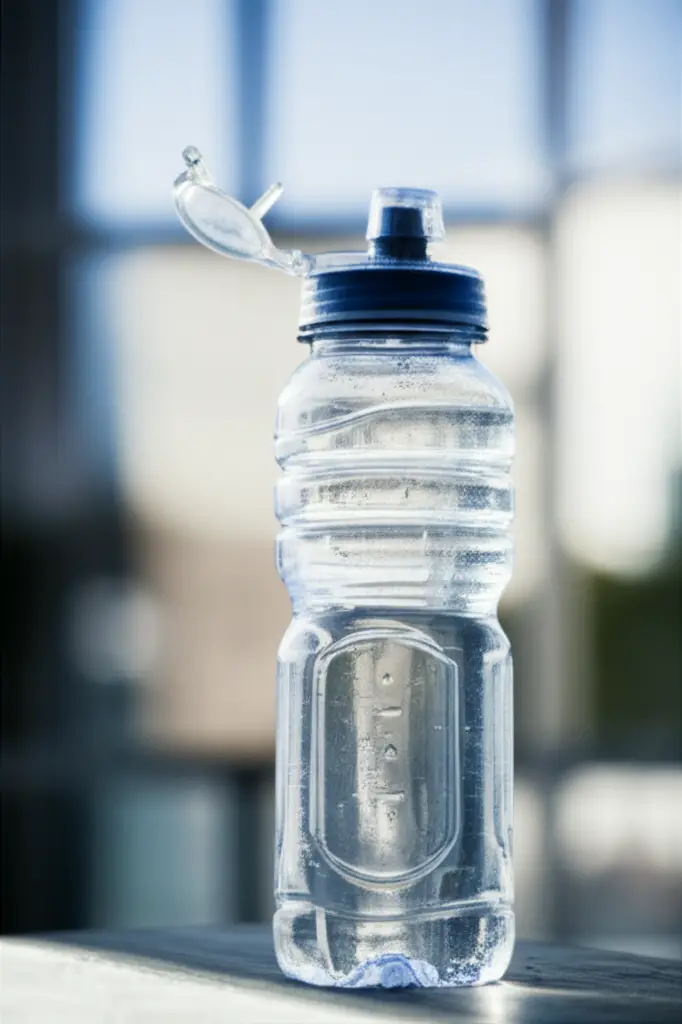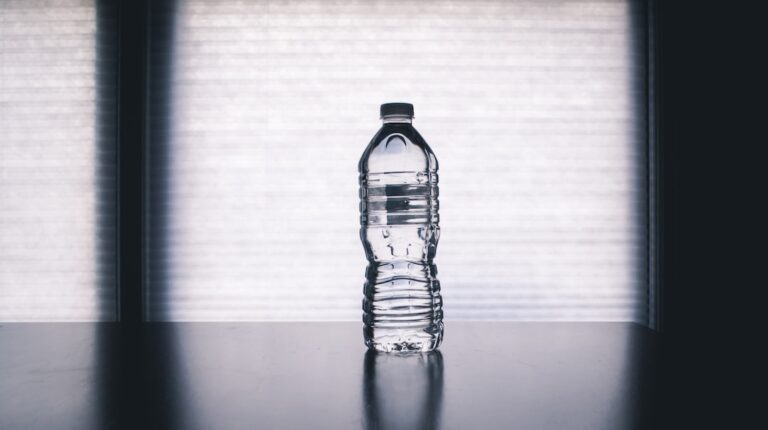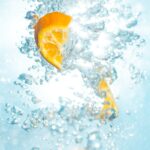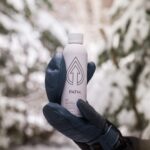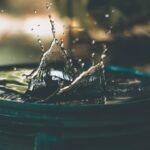Support our educational content for free when you purchase through links on our site. Learn more
Why Is Water Making Me More Thirsty? 7 Surprising Reasons 💧
You’ve just taken a big gulp of water, expecting instant relief, but instead, your throat feels even drier. Sounds frustratingly familiar? You’re not alone! Many people experience this baffling sensation where drinking water seems to increase thirst rather than quench it. Is your water betraying you? Or is there a deeper mystery at play inside your body?
At Water Brands™, we’ve tasted and tested countless waters—from pristine natural springs to ultra-purified bottles—and uncovered why sometimes water alone isn’t enough. Spoiler alert: it often comes down to electrolyte imbalances, hidden health issues, or even the type of water you’re drinking. Stick around as we unravel 7 surprising reasons behind this paradox and share expert tips to finally master your thirst once and for all.
Key Takeaways
- Drinking plain water can dilute electrolytes, triggering more thirst—especially after sweating or illness.
- Persistent thirst may signal underlying conditions like diabetes and warrants medical attention.
- Dry mouth and medication side effects often mimic thirst, so hydration isn’t always the answer.
- Mineral-rich and enhanced waters hydrate better than demineralized purified water.
- Balancing water intake with electrolytes and nutrition is key to true hydration.
- Tech tools like smart water bottles and hydration apps help track your fluid balance.
Ready to hydrate smarter? Check out our top electrolyte boosters and mineral waters to quench thirst the right way:
Table of Contents
- ⚡️ Quick Tips and Facts
- 💧 Understanding Why Water Might Make You Thirstier: A Hydration History
- 🌊 The Science of Thirst: How Your Body Regulates Hydration
- 🤔 7 Surprising Reasons Why Drinking Water Could Increase Your Thirst
- 🧪 How Different Types of Water Affect Your Thirst: Tap, Mineral, and Electrolyte Waters
- 🍹 Hydration Hacks: Balancing Water Intake with Electrolytes and Nutrition
- 🩺 When Persistent Thirst Signals a Medical Condition: Warning Signs and Next Steps
- 💡 Expert Tips for Managing and Preventing Excessive Thirst
- 📊 Thirst and Hydration: Myths vs. Facts
- 🔍 How to Track Your Hydration Levels Like a Pro
- 🧴 The Role of Water Quality and Purity in Hydration Satisfaction
- 🧠 The Mind-Body Connection: Can Your Brain Trick You Into Feeling Thirstier?
- 🎯 Conclusion: Mastering Your Thirst for Better Health
- 🔗 Recommended Links for Further Reading
- ❓ FAQ: Your Burning Questions About Thirst Answered
- 📚 Reference Links and Scientific Sources
Hello, hydration heroes! We’re the team at Water Brands™, and we spend our days (and nights, let’s be honest) obsessing over everything H2O. We’ve tasted waters from the deepest springs and the most advanced purification systems. But there’s a question we hear all the time that seems to defy logic: “Why is water making me more thirsty?” It sounds bonkers, right? Like sleeping is making you more tired. But it’s a real phenomenon, and we’re here to dive deep into the reasons why your trusty water bottle might be betraying you. Some people even wonder if certain water brands make you more thirsty, and we’re here to clear the waters.
⚡️ Quick Tips and Facts
Feeling parched even after chugging water? Here’s the lowdown on what might be happening:
- It’s Not Just About Water, It’s About Balance: Sometimes, drinking plain water can throw your body’s electrolyte levels out of whack, paradoxically making you feel thirstier.
- Underlying Health Conditions: Persistent, unquenchable thirst (medically known as polydipsia) can be a major red flag for conditions like diabetes mellitus.
- Dry Mouth vs. Thirst: Are you truly thirsty, or is your mouth just dry? They feel similar, but the causes can be very different, ranging from medications to simply breathing through your mouth at night.
- The Type of Water Matters: Believe it or not, water that’s been stripped of its natural minerals might not hydrate you as effectively as mineral-rich spring water.
- Listen to Your Body: If you’re constantly thirsty for days despite drinking plenty of fluids, and especially if you have other symptoms like frequent urination or fatigue, it’s time to see a healthcare provider.
💧 Understanding Why Water Might Make You Thirstier: A Hydration History
Ever wonder why we even feel thirsty? It’s one of the body’s most primal and powerful instincts, a survival mechanism honed over millennia. Thirst is your body’s built-in alarm system screaming, “Hey! The fluid levels are dropping! Do something!” This system is incredibly sophisticated. When your body loses fluid—through sweat, breathing, or trips to the loo—the concentration of salts and other minerals in your blood goes up. This change is the tripwire. It signals your brain that it’s time to send out the “thirst” alert. It’s a brilliant, life-saving process. But what happens when this ancient system seems to go haywire, and the very thing meant to satisfy it—water—seems to make it worse? That’s where things get interesting.
🌊 The Science of Thirst: How Your Body Regulates Hydration
Let’s get a little nerdy for a second. Your brain has a special thirst center in the hypothalamus. Think of it as your body’s “Hydration HQ.” This center has specialized sensors called osmoreceptors that constantly monitor the salt-to-water ratio in your blood.
When things get too concentrated (too much salt, not enough water), these receptors shrink and send out an SOS. This triggers two crucial responses:
- The Feeling of Thirst: Your brain makes you consciously aware that you need to find and drink fluids.
- Hormone Release: The pituitary gland releases antidiuretic hormone (ADH), also known as vasopressin. This hormone travels to your kidneys and tells them to conserve water by producing less urine.
It’s a beautiful, self-regulating loop. You drink water, the blood becomes less concentrated, the osmoreceptors plump back up, and the thirst signal turns off. But sometimes, a wrench gets thrown into these delicate gears.
🤔 7 Surprising Reasons Why Drinking Water Could Increase Your Thirst
So, you’re doing everything right—sipping water all day—but you still feel like you’ve been wandering a desert. What gives? Let’s break down the most common culprits.
1. Electrolyte Imbalance and Salt Levels
This is the big one and the most common reason for that paradoxical thirst. When you sweat, you don’t just lose water; you lose crucial minerals called electrolytes, like sodium, potassium, and magnesium.
Here’s the kicker: if you replenish with only plain water, you can dilute the remaining electrolytes in your bloodstream. Your body, in its infinite wisdom, senses this imbalance. It might interpret the low concentration of electrolytes as a sign that it needs more of them, which can trigger… you guessed it, thirst. It’s your body’s way of saying, “Thanks for the water, but I need the minerals that go with it!”
- ✅ The Fix: After intense exercise, a bout of illness, or just a super sweaty day, reach for something with electrolytes. This doesn’t have to be a sugary sports drink.
- ❌ The Mistake: Chugging gallons of plain, demineralized water after significant fluid loss.
Our Team’s Top Picks for Electrolyte Replenishment:
| Product Type | Brand Examples | Why We Like It |
|---|---|---|
| Electrolyte Powders | Liquid I.V., Nuun, LMNT | Super convenient, often low in sugar, and packed with a precise balance of electrolytes. |
| Natural Sources | Coconut Water, Watermelon Juice, Milk | Nature’s sports drinks! They provide hydration along with potassium and other minerals. |
| Enhanced Water | Smartwater, Propel | A good option for light hydration when you want more than plain water but less than a full-on sports drink. |
👉 Shop Electrolyte Boosters on:
- Liquid I.V.: Amazon | Walmart | Liquid I.V. Official Website
- Nuun: Amazon | Walmart | Nuun Official Website
- Smartwater: Amazon | Walmart
2. Diabetes and Blood Sugar Spikes
Okay, let’s get serious for a moment. Persistent and excessive thirst (polydipsia), especially when paired with frequent urination (polyuria), is one of the classic, hallmark symptoms of diabetes mellitus.
Here’s what happens: with uncontrolled diabetes, excess sugar (glucose) builds up in your blood. Your kidneys are forced to work overtime to filter and absorb this excess glucose. When they can’t keep up, the extra sugar is excreted into your urine, dragging fluids along with it. This leads to more frequent urination, which in turn leads to dehydration and an intense, unquenchable thirst. No matter how much water you drink, you can’t seem to get ahead because your body is constantly losing fluid.
- ✅ What to do: If this sounds familiar, it is crucial to see a doctor. Getting your blood sugar checked is a simple and vital step.
- ❌ What not to do: Ignore it. Untreated diabetes can lead to serious health complications.
3. Dry Mouth and Medication Side Effects
Sometimes, what you perceive as thirst isn’t true, body-wide dehydration. It’s actually dry mouth, or xerostomia. Your mouth feels sticky and parched, tricking your brain into thinking you need to drink.
Dry mouth can be caused by a huge range of factors:
- Medications: Hundreds of common medications list dry mouth as a side effect, including antihistamines, decongestants, antidepressants, and blood pressure medications.
- Mouth Breathing: If you sleep with your mouth open or have nasal congestion, you’re essentially air-drying your mouth all night.
- Medical Conditions: Conditions like Sjögren’s syndrome can cause dry mouth.
- Lifestyle: Tobacco and alcohol use are major culprits.
4. Overhydration and Water Intoxication
Yes, you can have too much of a good thing! While rare, drinking an extreme amount of water in a short period can lead to a dangerous condition called hyponatremia, or water intoxication.
This is the ultimate paradox: you drink so much water that you flush sodium out of your system. The body’s cells, including brain cells, begin to swell with water. In a strange twist, one of the early symptoms can be increased thirst as the body tries to signal that it needs to restore its sodium levels.
5. Dehydration Misconceptions: Are You Really Hydrated?
You might think you’re drinking enough, but are you? Thirst is actually a delayed signal; by the time you feel it, you may already be mildly dehydrated. According to the NHS, key signs of dehydration include:
- Dark yellow and strong-smelling pee
- Feeling dizzy or lightheaded
- Feeling tired
- Dry mouth, lips, and eyes
If you’re only sipping water when you feel parched, you might be in a constant state of catch-up.
6. Caffeine and Alcohol Consumption Effects
Your morning coffee and evening glass of wine could be part of the problem. Both caffeine and alcohol are diuretics, meaning they make you urinate more frequently. This fluid loss can easily lead to dehydration and, consequently, a powerful thirst that water struggles to quench.
7. Psychological and Habitual Factors
Sometimes, the cause isn’t physiological but psychological. Psychogenic polydipsia is a condition where a person feels compelled to drink large amounts of water without a physical need, often associated with certain mental health conditions. Anxiety can also cause dry mouth, which mimics the sensation of thirst. It can also become a simple habit—you’re so used to carrying a water bottle that you sip from it constantly, which can lead to the electrolyte dilution we discussed earlier.
🧪 How Different Types of Water Affect Your Thirst: Tap, Mineral, and Electrolyte Waters
Is all water created equal when it comes to quenching thirst? Not exactly. The source and composition of your water can make a difference.
| Water Type | Key Characteristics | Thirst-Quenching Ability |
|---|---|---|
| Tap Water | Regulated by the EPA in the U.S. and generally safe. Mineral content varies greatly by location. Some filtration processes can remove beneficial minerals. | Good, but can be less effective if it’s highly filtered and stripped of minerals. |
|
Mineral Water |
Sourced from natural springs and contains dissolved minerals like calcium, magnesium, and potassium. Brands like Evian and Perrier are famous examples. | Excellent. The natural electrolytes can help hydrate more effectively than demineralized water. |
|
Purified Water |
Often tap water that has undergone processes like reverse osmosis or distillation to remove impurities and minerals. Brands like Dasani and Aquafina fall into this category (they add back a small amount of minerals for taste). | Can be less effective. Without minerals, it might not satisfy the body’s need for electrolytes, potentially leading to more thirst. |
|
Enhanced Water |
Water with added electrolytes, vitamins, or flavors. | Very effective, especially for rehydration after exercise, as it’s specifically designed to replenish lost minerals. |
Some people swear that tap water is more satisfying than bottled water, while others feel the opposite. Ultimately, the “best” water is the one that hydrates you effectively. If you drink a lot of purified water and still feel thirsty, trying a Natural Spring Water rich in minerals might make a noticeable difference.
🍹 Hydration Hacks: Balancing Water Intake with Electrolytes and Nutrition
Quenching deep-seated thirst isn’t just about drinking—it’s about hydrating smartly.
- Eat Your Water: Many fruits and vegetables have high water content and are packed with natural electrolytes. Think watermelon, cucumber, oranges, and strawberries.
- Add a Pinch of Salt: If you’re drinking a lot of plain water, especially after a workout, add a tiny pinch of high-quality sea salt (like Celtic or Himalayan) and a squeeze of lemon to your water. This creates a simple, DIY electrolyte drink.
- Don’t Wait for Thirst: Sip water consistently throughout the day to stay ahead of dehydration.
- Balance Your Beverages: For every caffeinated or alcoholic drink, have a glass of water to offset the diuretic effect.
🩺 When Persistent Thirst Signals a Medical Condition: Warning Signs and Next Steps
We’ve had some fun, but it’s vital to know when your thirst is more than just a quirk. As the Cleveland Clinic notes, “if you constantly feel thirsty even after drinking a lot of fluids, you may have a more serious health condition.”
Seek medical advice from a GP if you experience:
- Excessive thirst that lasts for several days and isn’t quenched by drinking.
- Frequent urination, especially if you’re producing more than 5 quarts (about 4.75 liters) a day.
- Unexplained weight loss.
- Extreme fatigue or weakness.
- Blurred vision.
These can be signs of conditions like diabetes mellitus, diabetes insipidus (a rare hormone disorder), kidney issues, or other problems that require medical attention.
💡 Expert Tips for Managing and Preventing Excessive Thirst
Here at Water Brands™, we’ve learned a thing or two about staying perfectly hydrated. Here are our go-to tips:
- Know Your Sweat Rate: If you’re active, weigh yourself before and after a workout. For every pound lost, aim to drink 16-24 ounces of fluid to replenish.
- Start Your Day with Water: Drink a large glass of water first thing in the morning to rehydrate after a long night’s sleep.
- Carry a Reusable Bottle: It’s a simple visual cue to keep sipping throughout the day.
- Listen to Your Body, Not Just Your Mouth: Pay attention to all signs of dehydration, not just a dry mouth. Fatigue and headaches are common early warnings.
- Choose Mineral-Rich Water: When possible, opt for Natural Spring Water or Mineral Water to get those bonus electrolytes.
📊 Thirst and Hydration: Myths vs. Facts
Let’s bust some common hydration myths!
| Myth | Fact |
|---|---|
| You need to drink 8 glasses of water a day. | This is a decent guideline, but individual needs vary wildly based on activity, climate, and health. A better guide is to drink when you’re thirsty and monitor your urine color. |
| Caffeinated drinks don’t count toward hydration. | While caffeine is a mild diuretic, the water in coffee and tea still contributes to your daily fluid intake. Just don’t make them your primary source. |
| Clear urine means you’re perfectly hydrated. | Not always. Consistently clear urine could mean you’re drinking too much water and flushing out electrolytes. Pale yellow is the goal. |
| Sports drinks are always better than water. | They are only necessary during prolonged, intense exercise (over an hour) when you’re losing significant amounts of sweat and electrolytes. For most daily activities, water is perfect. |
🔍 How to Track Your Hydration Levels Like a Pro
Want to get serious about your hydration? Here’s how:
- The Urine Color Chart: It’s the oldest trick in the book for a reason. Aim for a pale, straw-like yellow. Dark yellow means you need to drink up.
- Hydration Apps: Apps like Waterllama or HidrateSpark can send you reminders and help you track your intake.
- Smart Water Bottles: For the tech-savvy, bottles like the HidrateSpark glow to remind you to drink and track your sips via a connected app. It’s like having a personal hydration coach!
👉 Shop Smart Hydration on:
- HidrateSpark: Amazon | HidrateSpark Official Website
🧴 The Role of Water Quality and Purity in Hydration Satisfaction
Does the taste and quality of your water matter? Absolutely! If your tap water has an unpleasant taste or odor, you’re simply less likely to drink enough of it. This is where water filters can be a game-changer.
- Pitcher Filters: Brands like Brita and PUR are great for improving the taste of tap water by reducing chlorine and other contaminants.
- Faucet-Mounted Filters: These offer continuous filtered water right from your tap.
Improving the taste of your water is one of the easiest ways to encourage yourself to drink more and stay properly hydrated.
🧠 The Mind-Body Connection: Can Your Brain Trick You Into Feeling Thirstier?
The link between your mind and your physical sensations is incredibly powerful. As we touched on, anxiety can directly cause physical symptoms like dry mouth, which your brain interprets as thirst.
Furthermore, the power of suggestion is real. If you start worrying about being dehydrated, you can become hyper-aware of your thirst, making it feel more intense than it is. For a deeper dive into the less obvious causes of thirst, the first YouTube video we’ve featured in this article is a fantastic resource. Dr. Eric Berg breaks down some fascinating remedies and reasons you might feel perpetually parched. You can jump to it here: #featured-video. It’s a fascinating reminder that hydration is a holistic process involving both body and mind.
🎯 Conclusion: Mastering Your Thirst for Better Health
So, why does water sometimes make you more thirsty? It’s a paradox that trips up many of us, but now you know the secret: it’s not just about drinking water—it’s about maintaining the right balance of electrolytes, understanding your body’s signals, and choosing the right type of water. Whether it’s an electrolyte imbalance, an underlying health condition like diabetes, or even dry mouth from medications, the reasons are varied but solvable.
Our experts at Water Brands™ recommend listening closely to your body and not just gulping down plain water mindlessly. If you’re sweating buckets, pair your hydration with electrolyte-rich fluids or mineral water. If your thirst is persistent and unrelieved by fluids, don’t ignore it—seek medical advice promptly.
Remember, hydration is a dance between water, minerals, and your body’s finely tuned systems. Mastering this dance means better health, more energy, and fewer confusing moments staring at your water bottle wondering why you’re still parched.
🔗 Recommended Links for Further Reading and Shopping
👉 Shop Electrolyte and Enhanced Waters:
- Liquid I.V. Electrolyte Powder: Amazon | Walmart | Liquid I.V. Official Website
- Nuun Hydration Tablets: Amazon | Walmart | Nuun Official Website
- Smartwater Enhanced Water: Amazon | Walmart
Smart Hydration Tech:
- HidrateSpark Smart Water Bottle: Amazon | HidrateSpark Official Website
Water Filtration:
- Brita Pitcher Filters: Amazon | Brita Official Website
- PUR Faucet Filters: Amazon | PUR Official Website
Books on Hydration and Health:
- Your Body’s Many Cries for Water by F. Batmanghelidj, M.D. — Amazon
- Waterlogged: The Serious Problem of Overhydration in Endurance Sports by Tim Noakes — Amazon
❓ FAQ: Your Burning Questions About Thirst Answered
Why does drinking water sometimes make me feel more thirsty?
Drinking plain water can sometimes dilute your blood’s electrolyte concentration, especially sodium, leading your body to signal for more fluids to restore balance. This is common after heavy sweating or illness when electrolytes are lost. Also, if you have an underlying condition like diabetes, your body might be losing fluids faster than you can replace them, causing persistent thirst despite drinking water.
Can drinking too much water cause dehydration?
Surprisingly, yes! Drinking excessive amounts of water in a short period can lead to hyponatremia—a dangerous dilution of sodium in your blood. This causes cells to swell, including brain cells, which can lead to symptoms like headache, nausea, and paradoxically, increased thirst. This condition is rare but serious and underscores the importance of balanced hydration.
What causes dry mouth even after drinking water?
Dry mouth (xerostomia) can be caused by medications (like antihistamines or blood pressure drugs), mouth breathing, certain medical conditions (e.g., Sjögren’s syndrome), or lifestyle factors such as smoking and alcohol use. Drinking water may temporarily moisten your mouth but won’t address the underlying cause, which is why the sensation persists.
How does electrolyte balance affect thirst after drinking water?
Electrolytes like sodium, potassium, and magnesium regulate fluid balance in your body. When you lose electrolytes through sweat or illness and replace only water, your blood becomes diluted, triggering thirst signals to encourage you to restore these minerals. Proper electrolyte balance helps your body retain water efficiently and quells excessive thirst.
Additional FAQs
How can I tell if my thirst is due to dehydration or a medical condition?
If your thirst persists despite drinking adequate fluids and is accompanied by symptoms like frequent urination, fatigue, blurred vision, or unexplained weight loss, it’s important to consult a healthcare professional. These could be signs of diabetes or other underlying health issues.
Is mineral water better for hydration than purified water?
Mineral water contains natural electrolytes that help your body retain fluids better than purified water, which often lacks minerals. For many people, mineral water can provide more satisfying hydration, especially after exercise or heat exposure.
Can anxiety cause increased thirst?
Yes! Anxiety can cause dry mouth and a sensation of thirst even when you’re not dehydrated. This is part of the mind-body connection where psychological stress manifests as physical symptoms.
📚 Reference Links and Scientific Sources
- Cleveland Clinic: Polydipsia (Excessive Thirst)
- WebMD: Why Am I Always Thirsty?
- NHS: Excessive Thirst
- Liquid I.V.: Official Website
- Nuun: Official Website
- Smartwater: Official Website
- HidrateSpark: Official Website
- Brita: Official Website
- PUR: Official Website
Stay curious, stay hydrated, and remember: sometimes, the answer to your thirst is more than just water. Cheers to smarter sipping! 💧🥤

